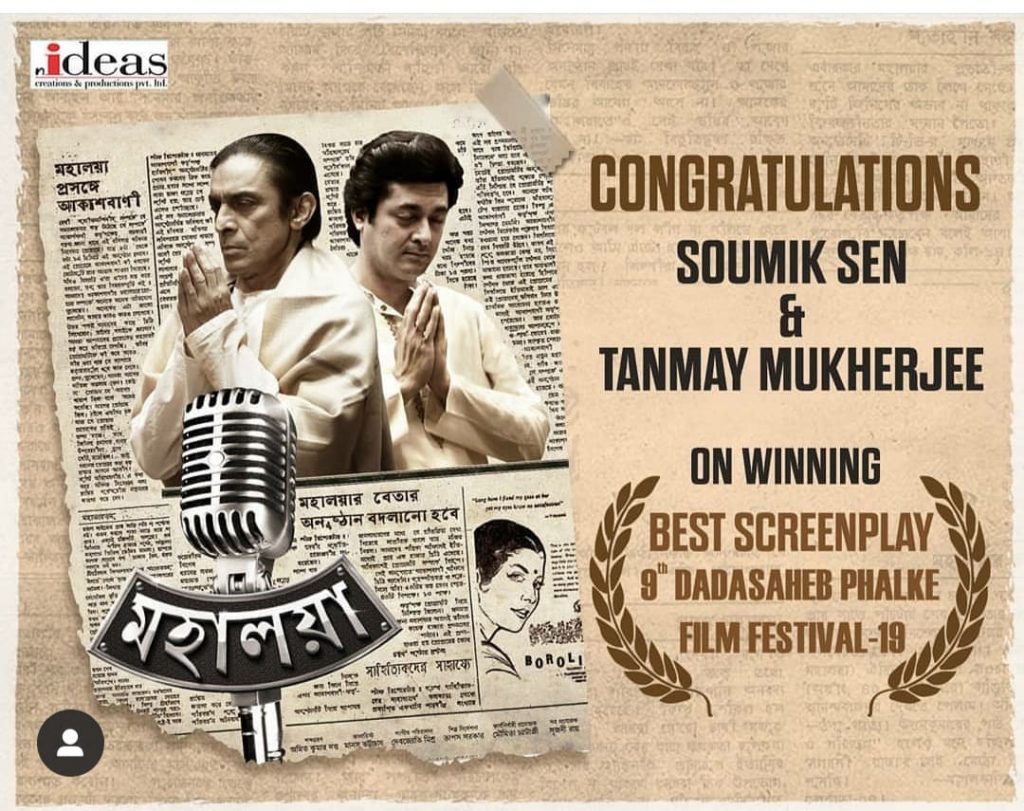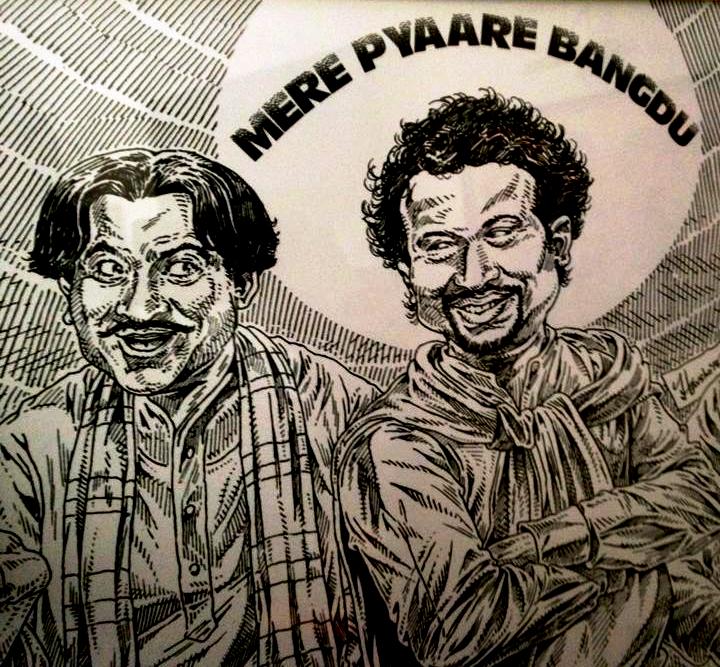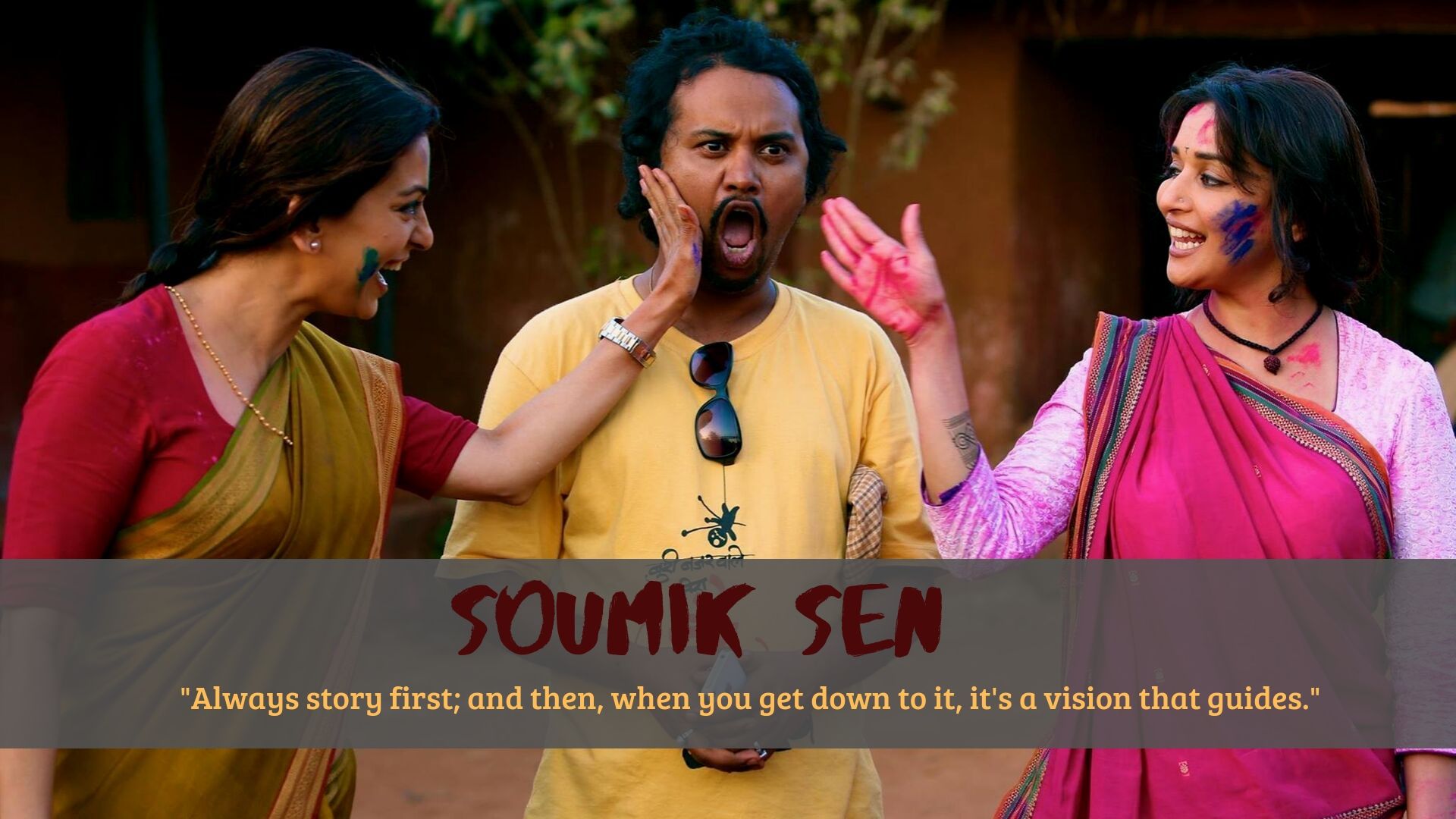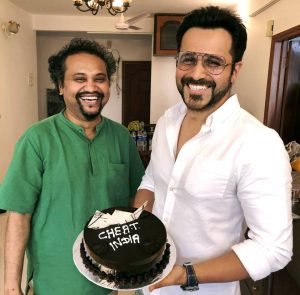Soumik Sen is the friend who gave me a Woody Allen omnibus as a marriage gift. Whether the gesture had some kind of symbolism I can’t say. It’s just that I continue reading it, till this day, when I am out of wits.
The way I remember my friend and colleague Soumik is very different from what he is now. A young man freshly out of the Delhi School of Economics, he joined Business Standard TV in Delhi, perhaps to appease the gnawing creative bug that was always integral to his constitution.
His breathless energy, voracious reading habits, ear (and fingers) for classical music and a head-full of unkempt curly hair that showed no signs of discipline ever – that’s the Soumik Sen with whom I worked for a couple of years, when the millennium was taking a turn.
The good thing about Soumik is – he never felt like a no-body. Ever.
He had ideas, and he stuck to them; he drew his lifeblood from books and films, and was always ready to talk about and around them, dissect them, and analyze them, even if that meant overnight hair-splitting debates.
I lost touch with him after life took me elsewhere, and he stayed back in Business Standard. I don’t know by what happy providence he landed in Mumbai, and started working in feature films. Never asked him. But yes, the Soumik I knew was always the one who wanted to do everything first-hand. That has stayed on. Being perfectly capable and aptly skilled to step into many shoes with equal aplomb, he has eventually became a screenwriter/ composer/ lyricist/ actor/ director – sometimes all at once.

After his directorial debut in Mumbai, his tryst with Kolkata and foray into Bengali films is also not surprising. His love for Bengali Cinema, particularly Satyajit Ray, was probably the reason why he got into the field in the first place. And then, once in Kolkata, he was on home turf, ready to think out-of-the-box.
And what ideas!! I remember him talking about a film that would feature the ghost of Devdas mentoring another spurned lover from present day; yet another plan was to make a movie in which the children of ‘Goopi Gyne Bagha Byne’ will inherit the ‘magic’ from their fathers …and so on.
Like Soumik says in his interview below “…never a dearth of material.”

The recent Bengali film that he scripted and directed, ‘Mahalaya’, is quite close to my heart. Majorly because it talks about a phenomenon that makes me cringe – it could perhaps be called cultural annexation.
I can understand ‘assimilation’, where slowly two or more cultures intermix and create a melting-pot which has features of all of them. That kind of mix is more out of necessity of the people who are living that culture, out of an urge to understand each other. But when a higher power, vain and under the influence, seeks to impose language restrictions or hit at the core beliefs of a community, just because they think they can – I have issues with it. I believe Soumik has too.
And it’s relevant; it’s happening now, and it will happen again.
For me, that’s what the film “Mahalaya” is all about – the right of communities to abide by their own cultural roots, and stand strong against any attempt to vilify it.
Anyways, I think I should take a pause here. My political misgivings are not going to make you a better writer; Soumik’s interview will. Here it is.
A few years back, Soumik wrote the script for Anurag Basu’s proposed biopic on Kishore Kumar. I know how close this project still remains to his heart; I know he likes being called ‘bangdu’ by his friends (that’s how Kishore Kumar addressed his protégé Sunil Dutt in Padosan); I have even read many of his interviews where he has shared his devoted passion about Kishore…
I couldn’t help but share an excerpt from a 2014 Times of India interview.
Well Soumik, I can’t help but agree to that.
I know you say Anurag Basu will do a better job directing the Kishore biopic. But why can’t two people direct two different films on the same person? Or three? Or more?
Why can’t there be a Bengali language biopic on Kishore Kumar?
Anyways!! Shouldn’t crib about things I can’t help. It’s just that I want to, so badly, see that film you wrote …




Very interesting. I loved the film ‘Mahalaya’